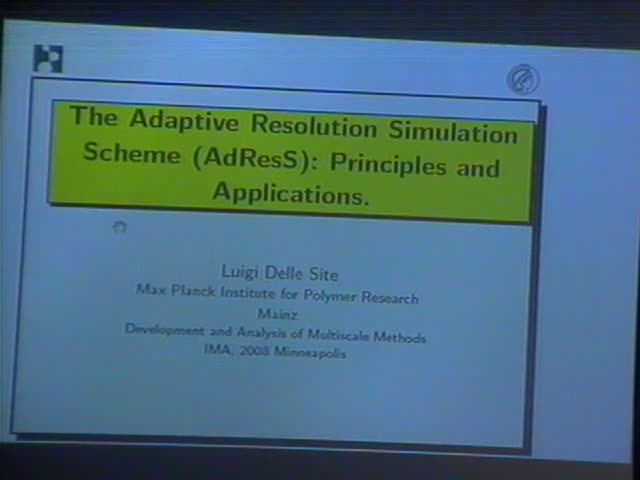The adaptive resolution simulation scheme (AdResS): Basic principles and applications
Presenter
November 7, 2008
Abstract
For the study of complex synthetic and biological molecular systems by computer
simulations one is still restricted to simple model systems or to, by far too
small, time scales. To overcome this problem multiscale techniques are being
developed. However in almost all cases, the regions treated at different level of
resolution are kept fixed and the free exchange of particles among these regions
is not allowed. I here present a robust computational method and its basic theoretical framework for an efficient and flexible coupling of the different regimes. The key feature of the method is
that it allows for a dynamical change of the number of molecular degrees of freedom during the course of the MD simulation by an on-the-fly switching between the atomistic and coarse-grained levels of detail. Thermodynamic equilibrium is preserved by interpreting the concept
of changing resolution in terms of "geometrically induced phase transition."
This leads to the introduction of a "latent heat" of switching and to the extension of the equipartition theorem to fractional (switching) degrees of freedom. The efficiency of the presented approach is illustrated in the application to several systems.
